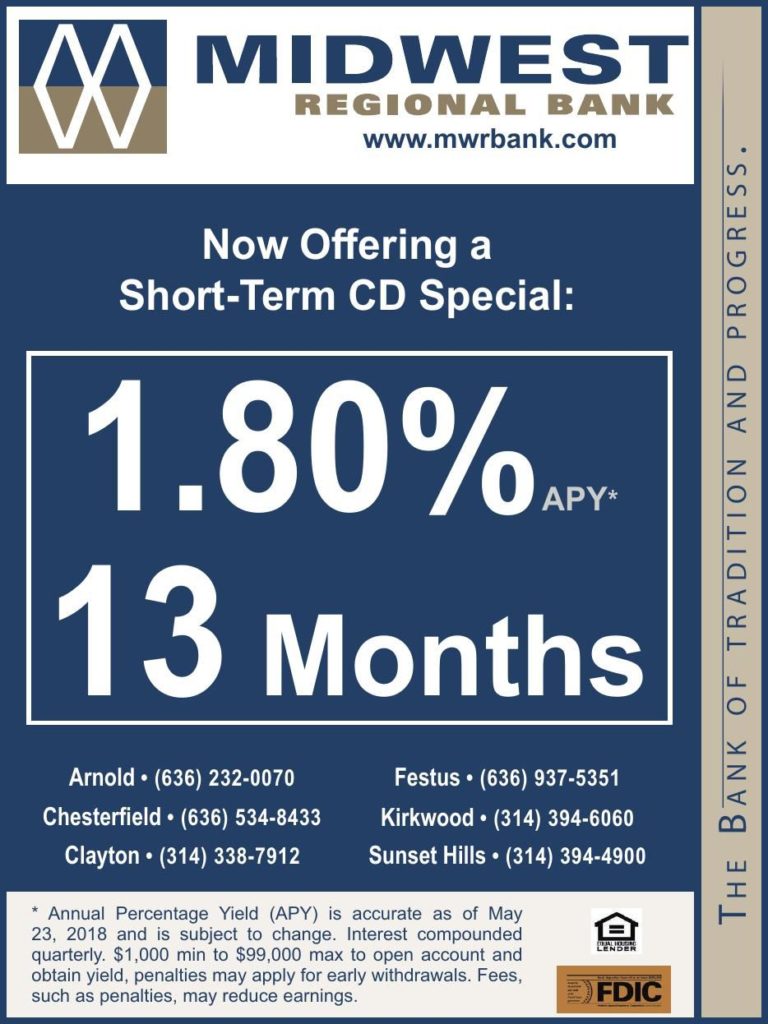Home » Articles posted by Phoenix Zhang
Author Archives: Phoenix Zhang
Wealth Building Secrets No One Told You About as a Business Owner
As a business owner, you’re constantly juggling numerous responsibilities. You’re focused on growth, customer satisfaction, and day-to-day operations. But somewhere in the hustle of building your empire, have you considered how to build lasting wealth? Many entrepreneurs overlook key strategies that could dramatically impact their financial future. Wealth isn’t just about making money; it’s about smart management and strategic planning. Involving professionals early—like an accountant or small business financial advisor—can uncover opportunities that align with your goals while navigating potential pitfalls effectively.
Today, we’ll uncover some wealth-building secrets that may not be common knowledge but can change the game for you as a business owner. It’s time to secure your legacy.
Compound Interest Is Your Best Friend
 Compound interest is a powerful tool that many overlook. It works behind the scenes, quietly multiplying your wealth over time. The sooner you start investing, the more significant impact it can have. Think of compound interest as a snowball rolling down a hill. As it gathers momentum, it grows larger and larger with each turn.
Compound interest is a powerful tool that many overlook. It works behind the scenes, quietly multiplying your wealth over time. The sooner you start investing, the more significant impact it can have. Think of compound interest as a snowball rolling down a hill. As it gathers momentum, it grows larger and larger with each turn.
Even small investments made early can lead to substantial returns later on. As a business owner, consider reinvesting profits into your venture or making strategic financial decisions that capitalize on this principle. Whether through retirement accounts or investment portfolios, let your money work for you while you focus on running your business.
Tax Deferral Strategies
Tax deferral strategies can significantly impact your wealth-building journey. By postponing tax payments, you allow your investments to grow without the sudden burden of taxation. Consider utilizing retirement accounts like a 401(k) or an IRA. Contributions to these accounts often reduce taxable income, allowing more funds to remain invested longer. Another effective approach is using depreciation on business assets. This not only lowers your taxable profit but also enables reinvestment into growth opportunities without incurring tax penalties immediately. Real estate investors have options, too. Like-kind exchanges let you defer capital gains taxes when swapping properties, facilitating continuous investment increases.
How to Leverage Other People’s Money
Leveraging other people’s money can accelerate your business growth significantly. It’s all about using resources that don’t belong to you. Consider partnerships as a starting point. You can pool financial resources for shared projects by collaborating with investors or fellow entrepreneurs. This reduces personal risk while maximizing potential returns. Another avenue is through loans and credit lines. Banks and private lenders are often willing to finance promising ventures. Just ensure your business plan is solid; a well-prepared proposal increases your chances of securing funds. Crowdfunding platforms also offer an innovative approach.
Plan for Business Exit Early
 Planning for a business exit is often overlooked, yet it’s crucial. The earlier you start thinking about it, the better prepared you’ll be to maximize your investment. Your options would be selling to another company, transferring ownership to family members, or even going public.
Planning for a business exit is often overlooked, yet it’s crucial. The earlier you start thinking about it, the better prepared you’ll be to maximize your investment. Your options would be selling to another company, transferring ownership to family members, or even going public.
Each route has its own set of complexities and advantages. Creating a solid exit strategy can add value to your business. Potential buyers want assurance that operations will run smoothly without you at the helm. Documenting processes and building a strong team are vital steps in this direction. Now, you’re exposed to secrets to financial freedom that many overlook in their entrepreneurial journeys. The road may be challenging at times, but with informed decisions and proactive planning, building lasting wealth becomes much more achievable.…
Compound Interest 101: How to Make Your Money Work for You
Are you ready to unlock the secret to growing your wealth effortlessly? Imagine if your money could work for you while you sleep, shop, or sip on a latte. Well, with compound interest on your side, that dream can become a reality. But hold on. What is compound interest? Basically, it’s the interest you earn on both your initial investment and any accumulated interest. So, over time, you’ll be earning interest on your interest. This powerful tool is one of the key elements in building long-term wealth. Find out more about growing compound interest by joining the Capital Club by Luke Belmar. The big question is, how do you make compound interest work for you? Well, that’s where we come in. In this guide, we’ll take you through the basics of compound interest and show you how to use it to build your wealth.
Start Your Investment Journey Early
 The key to harnessing the power of compound interest to the fullest is to begin your investment as early as possible. The earlier you start your advantageous journey, the more time your money has to grow exponentially. Even small contributions can snowball into a significant nest egg over time.
The key to harnessing the power of compound interest to the fullest is to begin your investment as early as possible. The earlier you start your advantageous journey, the more time your money has to grow exponentially. Even small contributions can snowball into a significant nest egg over time.
By starting young, you can take advantage of compounding returns and see substantial growth in your investments. Time is truly your best friend when it comes to building wealth through compound interest. Whether you’re in your 20s, 30s, or beyond, taking that first step towards investing today will set you on the path toward a financially secure future.
Reinvest Dividends
Instead of pocketing your dividend payouts, why not try putting them back into your investment? This way, you can buy more shares of the stock or fund that generated those dividends in the first place. Reinvesting dividends essentially allows you to take advantage of compounding on a larger scale. Over time, it can significantly max out your overall returns without requiring additional effort on your part. It’s like planting seeds and then planting the fruits they bear – your money works harder for you when you let it grow continuously. The best thing is, this strategy not only accelerates wealth accumulation but also helps smooth out market fluctuations by purchasing more shares at varying prices.
Level Up Your Contribution Rates
Are you looking to supercharge your investment growth? One key strategy is to level up your contribution rates. By increasing the amount of money you invest regularly, you can accelerate the power of compound interest on your investments. Even small increases in your contribution rates can make a significant impact over time. Consider bumping up your contributions by just a few percentage points each year to see substantial growth in your investment portfolio.
Stay Invested for the Long Term
 Just like you have heard thousands of times before, consistency is the key. When you commit to your investments over time, you allow them to grow and multiply organically. Imagine planting an apple seed and patiently watching it blossom into a fruitful tree. That’s how you’ll experience with your investment. Sure, market fluctuations may tempt you to pull out early, but staying the course can lead to significant returns in the future. At the end of the day, investing is never a sprint. It’s a marathon.
Just like you have heard thousands of times before, consistency is the key. When you commit to your investments over time, you allow them to grow and multiply organically. Imagine planting an apple seed and patiently watching it blossom into a fruitful tree. That’s how you’ll experience with your investment. Sure, market fluctuations may tempt you to pull out early, but staying the course can lead to significant returns in the future. At the end of the day, investing is never a sprint. It’s a marathon.
Final Thought
So if you’re consistent and able to weather all of those ups and downs you’ll find on the market, you’ll give your money the opportunity to work harder for you. Long-term investments also benefit from compounding gains over time. The longer your money stays invested, the more it has a chance to exponentially increase in value.…
The Essential Guide to Travel Insurance: What Every Traveler Needs to Know
Planning your next adventure is an exhilarating experience, filled with dreams of new destinations, cultural experiences, and unforgettable memories. Amidst the excitement, one crucial aspect that every traveler should consider is travel insurance. In this essential guide, we’ll explain everything you need to know about travel insurance, from its benefits to choosing the right coverage for your journey.
Understanding Travel Insurance: Why It’s Important

Travel insurance is your safety net, providing financial protection and peace of mind during your travels. It covers a range of unforeseen events, such as trip cancellations, long delays to the point where playing the castigates crossword clue is needed, medical emergencies, lost baggage, and more. While no one likes to think about worst-case scenarios, having travel insurance ensures that you’re prepared for the unexpected, allowing you to focus on enjoying your trip without worries.
Types of Coverage: Tailoring Insurance to Your Needs
There are several types of travel insurance to consider, each offering specific coverage based on your travel plans:
- Trip Cancellation/Interruption Insurance: Protects your investment in case you need to cancel or cut short your trip due to covered reasons such as illness, injury, or unforeseen events.
- Medical Coverage: This covers medical expenses, including hospital stays, doctor visits, and emergency medical evacuation. It is especially important when traveling abroad, where healthcare costs can be high.
- Baggage and Personal Belongings: Reimburses you for lost, stolen, or damaged luggage and personal items during your trip.
- Travel Delay: Provides coverage for additional expenses incurred due to flight delays, such as accommodation and meals.
- Emergency Assistance: This company offers 24/7 support and assistance services, including medical referrals, travel arrangements, and translation services.
Choosing the Right Policy: Tips for Travelers

When selecting a travel insurance policy, consider the following factors to ensure you get the coverage that meets your needs:
- Coverage Limits: Review the coverage limits for each type of insurance and ensure they align with the potential costs you may incur during your trip.
- Exclusions: Understand what is not covered by your policy, such as pre-existing medical conditions, extreme sports activities, or specific destinations with travel advisories.
- Add-Ons: Some insurance policies offer optional add-ons like rental car coverage, adventure sports coverage, or cancel-for-any-reason coverage. Assess if these additions are necessary for your trip.
- Read the Fine Print: Take the time to read and understand the policy wording, including terms, conditions, and exclusions. Clear comprehension of your coverage will prevent misunderstandings later on.
- Compare Quotes: Shop around and compare quotes from different insurance providers to find the best value for your coverage needs. Consider factors like price, coverage limits, and customer reviews.
Travel insurance is a vital investment that ensures you can explore the world with confidence and peace of mind. By understanding the types of coverage available, tailoring your policy to your specific needs, and choosing a reputable insurance provider, you’re not just protecting your trip; you’re safeguarding your travel experiences and memories.…
Navigating the Financial Landscape of Film Documentaries
Creating a compelling documentary film involves more than just capturing captivating footage and telling a compelling story. If you desire to achieve the same results as Jon Foy with resurrect dead on jupiter, you’ll need to consider investing in the project. Behind the scenes, filmmakers must navigate a complex financial landscape to secure funding, manage budgets, and ensure the successful production and distribution of their projects. In this guide, we’ll explore the key financial requirements for producing a film documentary, offering insights and tips to help filmmakers navigate the financial aspects of their projects effectively.
Pre-Production Expenses

The journey of creating a documentary begins long before the cameras start rolling. During the pre-production phase, filmmakers incur various expenses related to research, development, and planning. This includes costs associated with conducting interviews, obtaining archival footage, securing rights and permissions, hiring crew members, and scouting locations. Budgeting for pre-production expenses is essential to ensure that filmmakers have the resources they need to lay the groundwork for their film and set the stage for a successful production.
Production Costs
Production expenses account for the bulk of a documentary film’s budget. This includes costs related to equipment rentals, travel and accommodation, filming permits, insurance, and catering. Filmmakers must also budget for the salaries and wages of their production team, including directors, producers, cinematographers, and sound engineers. Additionally, unexpected expenses may arise during production, such as weather delays, equipment malfunctions, or last-minute changes to the filming schedule, so it’s essential to have contingency funds set aside to address unforeseen challenges.
Post-Production Expenses
Once filming is complete, the focus shifts to post-production, where raw footage is edited, sound is mixed, and visual effects are added to bring the documentary to life. Post-production expenses include costs associated with editing software and equipment, hiring editors and post-production crew, color grading, sound design, and music licensing. Filmmakers may also need to budget for expenses related to marketing materials, promotional screenings, and film festival submissions to promote their documentaries and attract audiences.
Distribution and Marketing Costs

Once the documentary is complete, filmmakers must navigate the distribution landscape to bring their film to audiences. This may involve securing distribution deals with streaming platforms, television networks, or film distributors or self-distributing the film through theatrical releases, DVD sales, or online platforms. Distribution and marketing costs include expenses related to advertising, public relations, film festival participation, and screenings. Filmmakers must develop a comprehensive distribution and marketing strategy and allocate resources accordingly to maximize the reach and impact of their documentaries.
Legal and Administrative Expenses
Throughout the production process, filmmakers must navigate various legal and administrative requirements to protect their rights and ensure compliance with industry regulations. This includes costs associated with obtaining legal counsel, drafting contracts and agreements, securing rights and clearances for music and archival footage, and obtaining errors and omissions insurance. Filmmakers must also budget for administrative expenses, such as accounting, payroll services, and film festival submissions, to ensure that their documentary is produced and distributed legally, soundly, and professionally.
Creating a documentary film is a multifaceted endeavor that requires careful planning, resource management, and financial acumen. By understanding the financial requirements associated with each stage of the production process and developing a comprehensive budget that accounts for all expenses, filmmakers can set themselves up for success and ensure the successful realization of their vision. While producing a documentary film may be a challenging and costly undertaking, the potential to inform, inspire, and impact audiences makes it a worthy investment for filmmakers passionate about storytelling and social change.…
Evaluating Financial Products: Choosing the Right Bank Accounts and Credit Cards
In the ever-evolving landscape of personal finance, selecting the right bank accounts and credit cards can significantly impact your financial well-being. With many options available, it’s essential to evaluate financial products wisely. For instance, holiday loans with no credit check can be tempting, but they often come with high interest rates and hidden fees. In this guide, we’ll discuss evaluating and choosing the best bank accounts and credit cards for your needs.
Bank Accounts

Bank accounts are a fundamental tool for managing your money, allowing you to store and access your funds safely. When selecting a bank account, there are several factors to consider. Most people prioritize convenience, fees, and interest rates. Convenience is essential because you’ll want to access your money easily. Consider the bank’s location and ATM network to ensure you can withdraw cash or make deposits without incurring extra costs. Online banking features such as bill payments and mobile check deposits are also vital for added convenience. Fees can significantly impact the value of a bank account. Some common fees include monthly maintenance, ATM, overdraft, and foreign transaction fees. Review the fee structure of potential bank accounts to understand what charges you may incur and how much they’ll cost.
Account Types
The two primary types of bank accounts are checking and savings accounts. Checking accounts typically offer convenient features such as debit cards, online banking, and bill payment options. These accounts are ideal for daily transactions and bill payments. Savings accounts, on the other hand, offer higher interest rates but have limited access to funds. They’re suitable for saving money you don’t need to access regularly, such as emergency funds or long-term savings.
Credit Cards

Credit cards can be valuable financial tools when used responsibly. They allow you to make purchases without immediately paying for them and offer rewards such as cashback or travel points. Consider the interest rate, annual fees, and reward programs when evaluating credit cards. The interest rate is crucial because it determines how much you’ll pay in interest if you carry a balance on your card. Annual fees are charges that some credit cards have for using their services and can range from $0 to several hundred dollars per year. Reward programs vary widely, so choose one that aligns with your spending habits and goals.
Most people prioritize either low-interest rates or rewards when choosing a credit card. If you carry a balance on your card, consider applying for a card with a low-interest rate. On the other hand, if you pay your bill in full each month, focus on finding a reward program that will benefit you most. Some common types of rewards include cashback, travel points, and store rewards. As with bank accounts, review the fees associated with each card to determine which offers the best value for your spending habits.
Importance of Regular Evaluation
Once you’ve selected a bank account or credit card, reviewing and evaluating its performance regularly is essential. As your financial needs and goals may change over time, so too should your choice of financial products. Consider factors such as fees, interest rates, and convenience to ensure that your money is working for you efficiently. Don’t be afraid to switch accounts or credit cards if you find a better option that aligns with your current financial situation. Regular evaluation can help you save money and make the most out of your finances.
Evaluating financial products might seem daunting, but with a thoughtful approach, you can make choices that align with your financial goals. By understanding your needs, assessing your spending habits, and considering the features of different bank accounts and credit cards, you can navigate the financial maze confidently. Remember, the right financial products can be powerful tools on your journey toward financial success.…
Tips for Applying for a Quick Cash Loan
The financial constraints in the economy push most people to apply for a loan. Sometimes, you find people borrowing money to cater for utility bills or emergencies. In such cases, lending from the bank may be a tedious process and not an option because it may take longer to process a loan. Consider applying for a quick loan if you need money urgently because it takes a few hours for the lender to approve the loan, usually at least 24 hours. My Quick loan offers Fast loans with instant payout. Here are essential tips to consider when choosing the best quick loan lender.
Check Their Accreditation
 Before choosing the best lender for your loan, it is essential to check whether they have the necessary paperwork. If you deal with a lender that does not have the proper license, you may land into problems such as increased interest rate, or they may shorten their repayment period, thus being untrustworthy to work with.
Before choosing the best lender for your loan, it is essential to check whether they have the necessary paperwork. If you deal with a lender that does not have the proper license, you may land into problems such as increased interest rate, or they may shorten their repayment period, thus being untrustworthy to work with.
When choosing the right company to issue a quick loan, consider checking the license of the lenders. It is prudent to check if the lender has a valid license to operate and ensure that you choose lenders with a good reputation and who follow the industry standards.
Consider Their Interest Rates
 The most crucial factor to consider when selecting a quick loan lender is their interest rates. The disadvantage of borrowing money from quick loan lenders is that they have high-interest rates, making it difficult for borrowers to repay them fully on time. Most lenders take advantage of borrowers because they know that they are in dire need of money. Therefore, before making your final decision with your lender on the amount of loan to borrow, consider negotiating their interest rates of the loan.
The most crucial factor to consider when selecting a quick loan lender is their interest rates. The disadvantage of borrowing money from quick loan lenders is that they have high-interest rates, making it difficult for borrowers to repay them fully on time. Most lenders take advantage of borrowers because they know that they are in dire need of money. Therefore, before making your final decision with your lender on the amount of loan to borrow, consider negotiating their interest rates of the loan.
Check Their Repayment Method
 When applying for a quick loan, it is essential to consider the method of repayment. You can consider providing a postdated look on your lender so that you can get your payment on a specific date. It is essential to ask them to provide you with your checking account number, and the lender can only remove the amount you are required to pay.
When applying for a quick loan, it is essential to consider the method of repayment. You can consider providing a postdated look on your lender so that you can get your payment on a specific date. It is essential to ask them to provide you with your checking account number, and the lender can only remove the amount you are required to pay.
Check Their Process Period
When choosing the right lender, ensure that you select a person that can process your money quickly. In this case, you need to remember that you are borrowing money for emergencies, and you need a lender that can approve your loan within a short period. Therefore, it does not make sense to choose a lender that takes longer to approve your loan.
Finding convenient lenders is an advantage because they allow online applications, and they can process your funds within a short time. Nowadays, most lenders require their applications for loans to be done online to fasten the approval process, unlike banks with a lengthy screening process that is complicated and could lead to denial of loans.
…
3 Reasons Why You Should Get a Health Insurance
The current COVID-19 pandemic has made the world aware that medical needs are unpredictable and can cause financial upheaval challenging to bear. With a high rate of illness without an effective vaccine, people have realized the importance of excellent health insurance. A person cannot plan and get sick, but they can be prepared for the monetary aspect. One such technique to arm oneself financially against uncertain health risks is to take out health insurance. Self-employed or any individual is advised to have health insurance for added protection.
Listed below are the significant advantages of acquiring health insurance:
Minimize Unexpected Hospital Bills
 Health insurance provides financial protection in the event of a severe injury or illness. If you don’t have insurance, you will have to pay all medical bills. If you only pay for annual checkups or a class of antibiotics, these bills may not matter much. However, if something happens to you, such as an accident or a severe illness, such as a chronic ailment, you will have to pay for all treatment and care. In addition, medical insurance covers other things like hospitalization, daycare processes, household expenses, and ambulance costs. This allows you to focus on your speedy recovery instead of worrying about these high costs.
Health insurance provides financial protection in the event of a severe injury or illness. If you don’t have insurance, you will have to pay all medical bills. If you only pay for annual checkups or a class of antibiotics, these bills may not matter much. However, if something happens to you, such as an accident or a severe illness, such as a chronic ailment, you will have to pay for all treatment and care. In addition, medical insurance covers other things like hospitalization, daycare processes, household expenses, and ambulance costs. This allows you to focus on your speedy recovery instead of worrying about these high costs.
Safeguard Your Family
When looking for the ideal health insurance policy, you can cover your entire family with the same coverage instead of buying separate policies. Think about your elderly parents, who are the most likely to get sick, as well as your dependent children. If something happens to them, you don’t have to worry about getting the best medical care if you have the right health insurance. Do your research thoroughly, talk to professionals to get an unbiased opinion, and make sure you purchase a plan that offers comprehensive coverage.
Deal with Medical Inflation
 Healthcare prices have increased dramatically in recent times. As a result, in the event of a healthcare emergency, customers have to deplete their savings, which puts a strain on their future strategies. Reports indicate that Indians rely primarily on their private savings when it comes to dealing with healthcare crises. As medical technology improves and diseases multiply, the price of treatment increases. And it is vital to see that medical expenses are not limited to hospitals. Prices for doctor’s visits, identification tests, ambulance charges, operations, drugs, room rentals, etc., are also constantly rising. By paying a relatively inexpensive health insurance premium each year, you can overcome the burden of health care inflation and, at the same time, choose quality care without worrying about what it will cost you.
Healthcare prices have increased dramatically in recent times. As a result, in the event of a healthcare emergency, customers have to deplete their savings, which puts a strain on their future strategies. Reports indicate that Indians rely primarily on their private savings when it comes to dealing with healthcare crises. As medical technology improves and diseases multiply, the price of treatment increases. And it is vital to see that medical expenses are not limited to hospitals. Prices for doctor’s visits, identification tests, ambulance charges, operations, drugs, room rentals, etc., are also constantly rising. By paying a relatively inexpensive health insurance premium each year, you can overcome the burden of health care inflation and, at the same time, choose quality care without worrying about what it will cost you.
Bottom Line
It is a mistake to think that health insurance is only for people with severe or chronic illnesses or people at high risk of developing a disease or injury. Health insurance is also for those who are healthy. Taking out health insurance when you are in the prime of your life can help you stay healthy.…
Factors to Consider When Choosing a Cash Advance Option
There are times within the month when all of a sudden, you are in immediate need of cash. You become overwhelmed with bills, and there is nothing in your bank account, and the next best option is getting a cash advance. When you are in this situation, you can accept cash from any lender without considering factors like interest rates.
A cash advance can save your day. It is easy to apply because you instantly receive the money, and no paperwork is needed. Got any bills you have to pay? Does your bank account balance read zero?
Here are some of the factors you should consider to make the right decision for a cash advance option:
The Interest Rates
This is perhaps the first thing you should check. Typically, interest rates for fast short-term loans are high than other credit options. Fortunately, many companies have ventured into this industry, bringing stiff competition to the borrower’s advantage. To attract more customers, some of these companies have slashed their interest rates. There are even companies with interest rates lower than what is offered by credit card companies.
Loan Processing Time

When you have cash emergencies, you might need the money to be deposited in your account within 24 hours. It would be best if you went for an option that will not keep you waiting as you end up wasting time and accumulating more bills. Since we are talking about cash advance, your account should be credited within the quickest time possible.
First, before you apply, inquire about the company’s turnaround time. Crediting should be done within a day. If the application process is long and tedious, choose a company with a simple process.
Availability of Alternatives
You should not immediately file your application on the first cash advance option you encounter. For starters, the interest rates and the turnaround time can vary. Sometimes you might think you are getting the best deal from the lender you have chosen, only to find out later that there are companies with even better deals. Some companies have fixed interest rates, while others have rates varying with the loan tenure.
Other Charges
Before signing anything, it is crucial to understand all the cost implications. A company can charge low interest rates but outrageously charge high penalties for late repayments. If you are sure you can repay the loan in time, then you can go for the option. If you are not sure, choose a company that charges the lowest late repayment penalty.…
Three Effective Ways to Achieve Financial Freedom
Many people are aiming to achieve financial freedom, but a lot of them fail and remain living paycheck to paycheck. If an unexpected bill or expense comes up, they are left in the dark, not knowing what to do next. Some are able to find a way out, while others don’t, and this is the time when more financial problems come into the picture.
It is easy to say that you are going to budget your money so you can start paying off your debts. But in reality, this is hard to do. Aside from your finances, you should also work on your career as well as the spiritual, physical, social, and intellectual aspects of your life, including your family.
The following are some effective ways in which you can achieve financial freedom:
Spend Within Your Means
When you have money in your pocket, you can’t just go ahead and spend it on whatever you want to. You have to look at the bigger picture. Make sure that all your bills are paid off first before you make a purchase of any sort.
Some people get into debt because they spend more than what they are actually earning. If this habit doesn’t change, the financial crisis that they are in will never end. This is why before you spend a single dime, you need to think hard.
Budget Your Money Carefully
Like what we have mentioned earlier, budgeting is easier said than done. If you don’t know how to budget your money, you will end up falling short.
The key is, you have to really careful when allocating money for whatever expenses you may have. First, you need to know your needs and your wants. You should always prioritize your needs, such as food, rent, utility bills, tuition fees for your kids, etc. It is also critical that you set aside some money for your savings.
Start Saving Money
If you have savings, you will always have the cash to cover unexpected expenses. You no longer have to borrow from your friends and family or even from lending companies.
So instead of spending your extra cash on unnecessary trips to the shopping mall, why don’t you just spare it for your emergency needs? As you grow your savings account, your road to achieving financial freedom also starts. In the future, you won’t have to anxiously wait for payday anymore.…
Factors to Consider When Choosing a Money Lender
Over the years, the lending business has gained popularity in the US. Statistics reveal that the lending sector has played a vital role in providing loans to many people. As the economy gets better, even people who don’t qualify for convectional can enjoy financial help. However, there is a call for consumers to consider some things while choosing a money lender. The following the essential factors that one should consider when looking for a money lender:
Terms of Engagement

Flexible terms of engagement define an excellent money lender. When you receive a loan from any lender or a company, it’s important to inquire about the payment schedule, plus terms of the loan. In fact, the two should be reasonable and manageable. This will keep you far from getting into big trouble. In case you miss the repayment schedule, your lender should be accommodative and understanding.
Credibility
When it comes to lending money, a private money lender should be credible beyond reproach. When receiving money from these lenders, it’s crucial to ensure he/she is reliable and trustworthy. Also, the money to acquire should be clean. The track record and reputation of the lending company or private money lender should be overlooked. Look out for these licensed money lenders. With this, you won’t get into trouble.
Product and Services Offered
It’s significant to check this when dealing with money lenders. The products and services provided should help you to determine whether the lender is legit or not. A credible and reputable lending institution will always offer various services on board. First, inquire about the services to enjoy before making the final decision. Eventually, it will spare you time that you would have spent from moving from one lending company to another.
Low-Interest Rates

Keep in mind that there is an interest rate when borrowing the money from the moneylender. Choose the lender who offers low-interest rates. Remember that the interest rates differ from one country to another and are calculated at a given percentage. A legit lender will offer loans at a sensible and recommended interest rate. Some lenders will confuse you and include the hidden charges. Therefore, avoid lenders who come with exorbitant charges.
With all the private money lenders available in your country, it’s not easy to choose the legit one. However, with the above tips, you’ll be able to evaluate the right one. Don’t let anyone blind you; consider the low-interest rates, terms of engagement, credibility, and products and services of a money lender.…
What You Should Know About Forex Trading
At the start, forex trading can appear to be quite complicated. Thus, there is a need to take your time to learn about different aspects of forex trading. Some of the things you should learn about include leverage, currency pairs, interest rates, forex signals, and more. When you do so, forex trading becomes less complicated.
The truth is that trading on a forex market can be quite simple if you can follow visual signals on charts that are provided by the trading platforms. This is because you can read detailed information about the different financial reports that you can base your trades on. You should note that the way you trade is based on personal preferences, amount of money, and time you have to learn. Below are steps to Learn Forex Trading.
Learning the Basics
This is the first step you should following when learning about forex trading. You have to start reading the basics. Nowadays, there are many online guides and tutorials to read. Also, there are trading forums. It is advisable to start reading the forex glossary. This will help you to understand different industry-specific words and their meanings. For instance, you will come across various words such as leverage, fill, dealing spread, no touch, cash price, and more. If you are a beginner, you have to familiarize yourself with the basics.
Sign a Demo Account
Most forex brokers will give you a demo account to get an idea of the way the market works. After opening the demo account, you can experiment on a wide range of trading methods, try real-time trades, and even learn the mechanics of trading. It is a good idea to keep on using a demo account until you understand the various trading methods and can read data and charts.

Risk Management
An important thing you should learn is risk management. A trader that cannot manage the potential risk is likely to lose his or her money in the long-run. It is a good idea to learn about risk management before you start to trade. Start by learning various money management methods and even the risk-reward ratio. This will help you to come up with a usable trading plan.
Create a Live Trading Account
It is advisable to start forex trading with a micro-trading account. The good thing about this is that it is easy and quick to set up. Moreover, it needs a small investment to start. At the start, it is vital to keep your trades small and increase them over time as you gain knowledge and skills.
Control Your Emotions
Ideally, trading is all about undertaking emotions. Remember that in forex trading your money is at stake in an unpredictable and volatile environment. However, if you enter this market with emotions, you are bound to suffer from the failures. In any case, when you are emotional, you will make quick decisions. It is a good idea to develop a trading strategy that is based on the trial trading account. The best way is to trade objectively.…
Why You Should Choose a Great Trade School
Trade schools have grown fast in various parts of the world because business students and investors tend to enroll more frequently to develop their career and learn the modest trading strategies. It is essential to join a trade school because you will have the opportunity to explore more trading platforms and new approaches that will increase your business.
A school that offers trade programs will help you to make diverse improvement in the stock market since you will easily notice the changes and trends that will make a dramatic change for your business. You are supposed to focus on the programs that will enable to grow in your field of specialty. The following are major reasons to join a trade school.
Trade Schools will Help You in Decision Making in Your Business

When you enroll in the best trade school, the trainers will help you in the decision-making process of your business. If you are a student without a business yet, you will have the opportunity to involve the officials in the trade school to make decisions that will help you to become a successful trader in the stock market.
The school will help you achieve your goals, as they will try to understand your personal needs and the implementations that you want for your business. Once you graduate, you will have the opportunity to enjoy the ability to implement the most reliable strategies for your business and make conscious decisions.
Flexibility with the Market Opportunities and Trends
It is important to join a trade school if you want to succeed in your career in the stock market. The school will not be tied to a fixed curriculum because the market is a place prone to multiple changes and trends. The school will help you to learn the upcoming trends and wide opportunities that will help your business to grow.
The schools are capable of expending their programs into the latest trend and formats that have a high demand. This will let you have experience in the newest trading methodologies that are functional and profitable in the current market.
The Education Model is Based on Competency

Most trade schools across the world usually focus on programs that will make entrepreneurs and students more competitive in the stock market. Emphasis on the trending topics in the market will help you to develop a business culture that will improve your production and cope with the competition from your trade colleagues. The trade education model values the attributes that will make business students and entrepreneurs more updated with the modest trends that can help growing businesses constantly.
Trade schools tend to check the most breeding grounds in the stock market so that they can educate people on the best methods of implementing these ideas into achievements. Competency models of trade will give you a chance to identify differences in competition and choose a path that will lead you to the top level.…
Advantages of Protecting Your Savings
Are you ready for a disaster? Having listened to the news of natural disasters in the recent months, I cannot stop thinking about the turbulence that survivors must experience. I am sure that your life should be confusing and traumatic in light of physical and financial loss. Then I started thinking about things that nobody wants to think about and how to protect their finances before disaster strikes. If the disaster is natural that affects the process of protecting your savings or a fire that destroyed a single house, the consequences for the survivors are real and go far beyond visual destruction.
Maintain a Good Plan
It is important to have a plan that protects you and your family should take a tragedy, and you will not be able to live at home or go to give some time to work. If you had only a few moments of time to leave your home and could not go back for days or even weeks, what would you do and how would you use to access cash, banking information, identification or important information? These are just some tips on how to prepare for a disaster before it is too late.
Think About What Might Happen
Determine the most likely hazards and plan accordingly. For example, do you live in a community susceptible to tornadoes, hurricanes, or forest fires? Preparation for any type of disaster may vary, but there are some things everyone should do. Talk to your local emergency management office for tips and recommendations on how to prepare for a disaster.
Check Your Landlord’s or Tenant’s Coverage and Car Insurance
Regularly check your landlord’s or tenant’s coverage and car insurance. What does your policy really cover? Most policies for homeowners do not cover floods or seismic damage. If you live in an area that is vulnerable to these disasters, you may want to buy a separate policy for this coverage. The goal is to have sufficient coverage to repair the damage to your home, your cars, and other valuable assets and to you and your family when necessary to provide temporary housing.

Records of Your Personal Property
Keep records of your personal property and include the estimated value. Many insurance agents encourage their clients to take regular video images of their home and store it outside the home if they have to file a lawsuit.
Register for Direct Deposit if Your Company Offers It
By sending your funds directly to your bank, you can make sure you can quickly access these funds when you need them. Direct deposit also avoids the risk of loss, delay or theft of checks. Consider setting up your computer or smartphone access to your bank accounts so you can manage your accounts online from anywhere without writing checks.
Have an Emergency Savings Fund
 The disaster can affect your ability to work or your income over a period of time. Therefore, a savings account can help you during a difficult economic period without having to borrow or borrow money from your family. Experts suggest that you should have 3 to 5 months in your savings for emergencies. And remember, your money is safer in your FDIC or NCUA insured institution than if it’s hidden under your mattress.
The disaster can affect your ability to work or your income over a period of time. Therefore, a savings account can help you during a difficult economic period without having to borrow or borrow money from your family. Experts suggest that you should have 3 to 5 months in your savings for emergencies. And remember, your money is safer in your FDIC or NCUA insured institution than if it’s hidden under your mattress.
- Back up important information. Scan, for example, your license, your social security card, your credit cards or your home inventory and store the copies in a safe place, for example.
- Know where all the important information is stored and store it in your home. If you need to evacuate quickly, you can go to a place and get quick access. Being organized is essential.
Tips for Safer Online Banking
The Internet has simplified so many aspects of life and made many daily transactions instantaneous. It can be easy to take these seemingly small comforts for granted. How many times did you sign up online, log into your online bank account, and immediately transfer money from your savings account to your checking account to squander new clothes or pay for unexpected expenses?
Going to the bank is no longer the duty that it once was. Now the bank comes to you. It is on your laptop and your smartphone and stays open 24 hours, provided you have an Internet connection. From saving trees and customer time to reducing overdrafts and identity theft, online banking has simplified the way most people manage their finances today.
As long as you stay alert and make smart decisions, you can make a great effort to ensure your online safety.
Here are four tips to help protect your money:
Protect Your Password
 Use a secure password with a mixture of letters, numbers, and special characters; one that is not easy to guess. Password123, qwerty (among the most common passwords), your name, phone number, address or the names of children and pets are easy to guess. Avoid them and stay safe online. Change your password frequently, and do not save it on paper and never share a password with someone. Use a secure password manager if you tend to forget your password.
Use a secure password with a mixture of letters, numbers, and special characters; one that is not easy to guess. Password123, qwerty (among the most common passwords), your name, phone number, address or the names of children and pets are easy to guess. Avoid them and stay safe online. Change your password frequently, and do not save it on paper and never share a password with someone. Use a secure password manager if you tend to forget your password.
If you receive a call from your bank that asks you to provide or confirm the details of your account, make sure it is not fraudulent. You can even receive fraudulent emails requesting such information. Never click on a pre-formulated link to access your bank account, but enter the URL in the browser. If you enabled autocompletion for web forms, you must deactivate them on your bank’s website.
Use a Secure / Encrypted Connection
Do not access public, unencrypted Wi-Fi connections to your bank account. Do not log on to public or shared computers on your bank’s website, and always log out when you complete the transaction. If you are forced to use a public connection, change your password as soon as possible from your own device (PC, laptop or smartphone). If possible, use a VPN service to access your account.
Another smart step is to use a separate and dedicated browser to access your online bank account. If you use Chrome or Explorer to navigate in general, use Firefox for your banking transactions.
Use Your Bank’s Security Options
Most banks offer a two-step verification process, such as One Time Password (OTP) for a more secure online banking. Register to receive notifications of transactions/email alerts from your bank and follow them. Too often, users filter these messages in a separate folder or archive them without reading. Make sure you do not do it. Check your bank statements regularly and contact your bank if something is wrong.

Protect Your Devices
To strengthen your online security, make sure that all your devices are protected against viruses, hackers, and malware. Install antivirus and antimalware software with heuristic capability. Configure firewalls Keep your operating system updated and allow the highest levels of security in your web browsers.…







